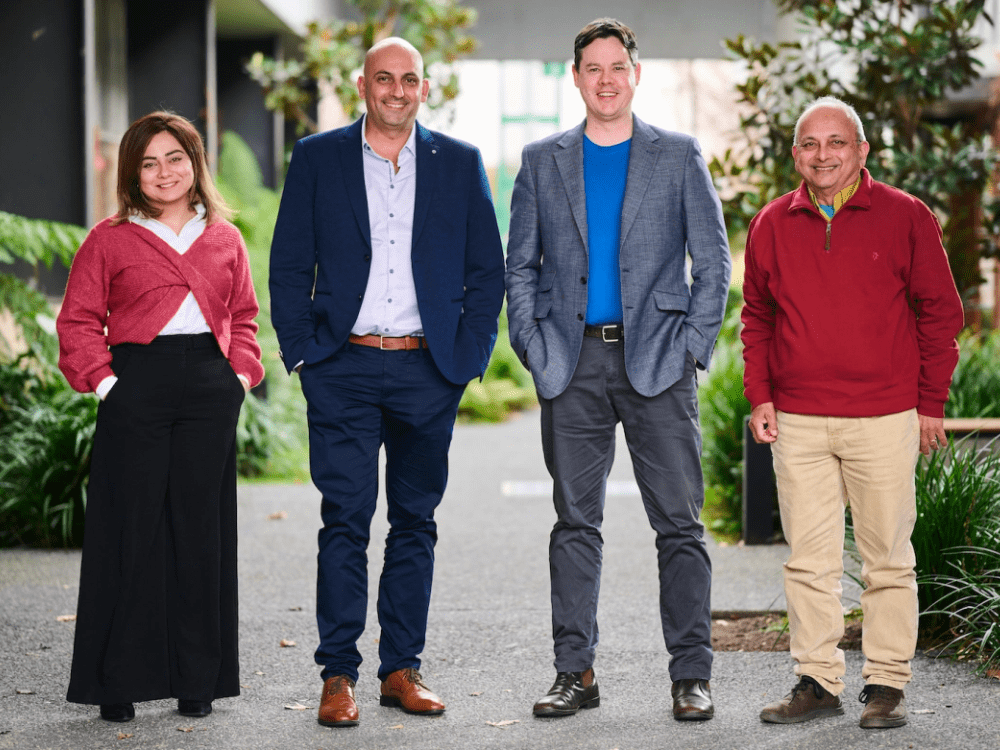Nourish Ingredients, an Australian startup deploying precision fermentation to produce animal-like fats for the next generation of meat alternatives, has secured A$5.8 million ($3.9 million) in funding and grants from the Australian government to boost innovation and develop talent as it gears up to launch late next year.
Its first product is a fat that boasts an “authentic animal taste, aroma and natural cooking reactions,” claims the company, which was cofounded by James Petrie and Ben Leita in 2020.
Nourish raised $28.6 million in a series A round led by Horizons Ventures last fall.
Through 11 PhD and postdoctoral fellowship grants, Nourish’s partnerships with the Australian National University, The University of Queensland, and Macquarie University will foster talent in synthetic biology, precision fermentation and engineering, said the Canberra-based firm, which is also extending partnerships with Flinders University, Queensland University of Technology and The University of Western Australia.
Animal-like fats: High impact, low inclusion rates
“These collaborations reflect our commitment to driving innovation and fostering talent development in precision fermentation,” said Nourish CTO Anna El Tahchy, who claims widely-used fats such as coconut oil do not deliver the performance, mouthfeel, flavor and aroma that consumers are looking for in meat alternatives.
Replacing even small amounts of coconut oil with more “animal-like” fats can have a dramatic impact on the sensory experience, she told AgFunderNews.
“Our first product will provide authentic animal taste, aroma and natural cooking reactions. It also has high potency, which means that it brings a huge impact at a very low inclusion rate (<1% of the meat end product).
“We are now looking at late 2024 [to launch] and are currently in conversations with potential commercial partners,” added El Tahchy, who noted that Nourish does “not intend to build our own large scale [fermentation facility].” But she added: “We are looking to build our downstream and ingredients processing facility in the next round, location to be defined depending on fermentation and customers’ proximity.”
She added: “For our first product to launch, we don’t require a lot of downstream processing. Our system is efficient at a very low inclusion rate, hence offers a high commercial viability to us and our customers. Our product also has the potential to offer customers the opportunity to achieve a cleaner label.”
The go-to-market strategy
As for the go-to-market strategy, she said, “From several tasting and demo events, we have gathered a lot of traction from customers across the globe. We are looking to the US first, and Singapore, and are also gaining a lot of interest from Europe.”
On the regulatory front, she said, “We’re in the process of FDA [US Food and Drug Administration] and SFA [Singapore Food Agency] submissions. The regulatory path is challenging from a timeline perspective, but not as complex from what we know about our strain’s history in food.”
Nourish is not yet providing details about the composition of its fats or how they might be labeled, she said: “We’re still in the process of defining our product name and labels.”
Asked whether alt meat companies with a ‘plant-based’ market positioning want to use ‘animal-like’ fats in their products, even if they are made by microbes, El Tahchy said: “Our fats aren’t derived from animals. Our fats co-exist in natural sources and aren’t limited to animals. They have the same structure and function as the one found in animals and consumers are demanding an animal-like taste.”
Designer fats
Nourish is one of several startups working in the burgeoning ‘designer fats’ space, with some genetically engineering microbes to express animal-like fats (ÄIO, Circe, Yali Bio, Melt&Marble); others making cell-cultured fat by growing real fat cells in a bioreactor (Mission Barns, Believer Meats); and some playing around with the structure of plant oils through emulsions (Lypid) and oleogels (Shiru, Motif FoodWorks).
But are microbes efficient at producing fats at scale?
Unlike companies using microbes to produce proteins, where yields can be a challenge, cofounder James Petrie told FoodNavigator-USA last year, “We’re relatively fortunate as we have strains that are already very happy to make a lot of fat, which is not the case in the protein world; the challenge for us is less about increasing the yield and more about tuning the type of fat that’s being produced.”
The fats Nourish is making can also deliver high impact at very low inclusion rates, added Petrie, a crop metabolic engineer who worked as a research scientist at Australia’s national science agency CSIRO before cofounding Nourish.
Further reading:
Shiru unveils plant-based fat for next gen meat alternatives: ‘It looks and behaves like animal fat’
Meet the founders: ÄIO looks to upcycled feedstocks to fuel biomanufacturing platform
Meet the founders: Lypid tackles fat, the final frontier for alt meat





